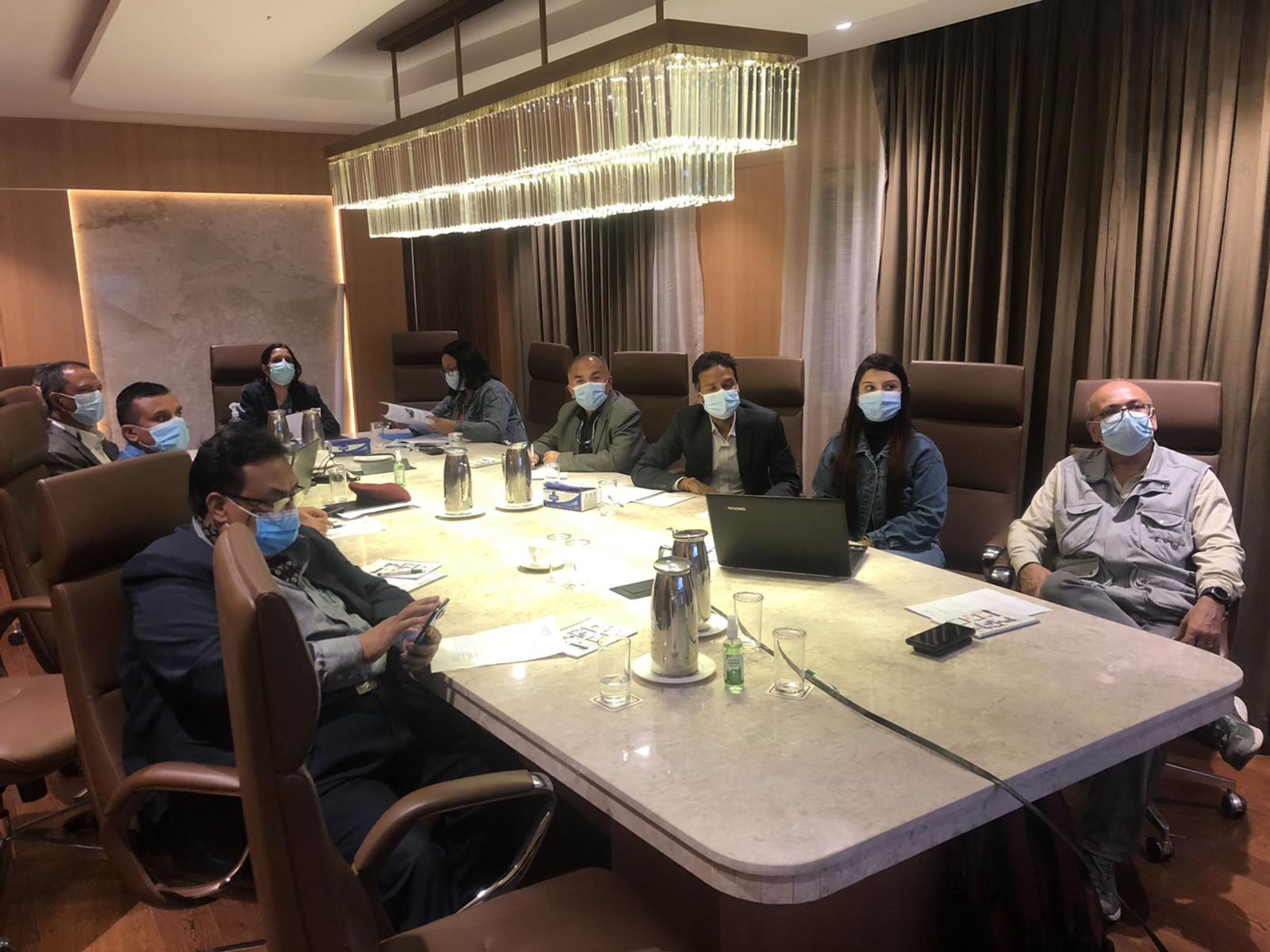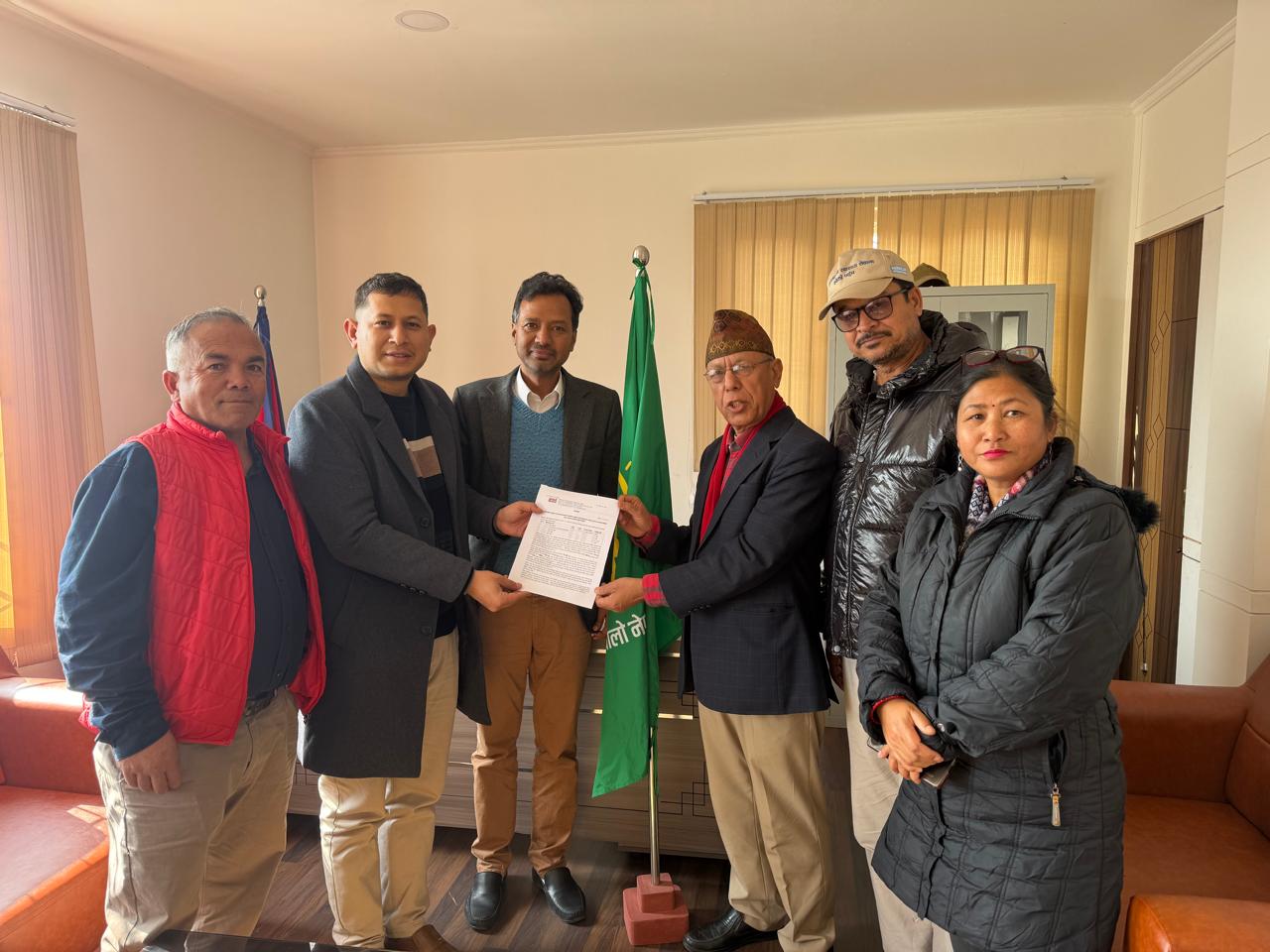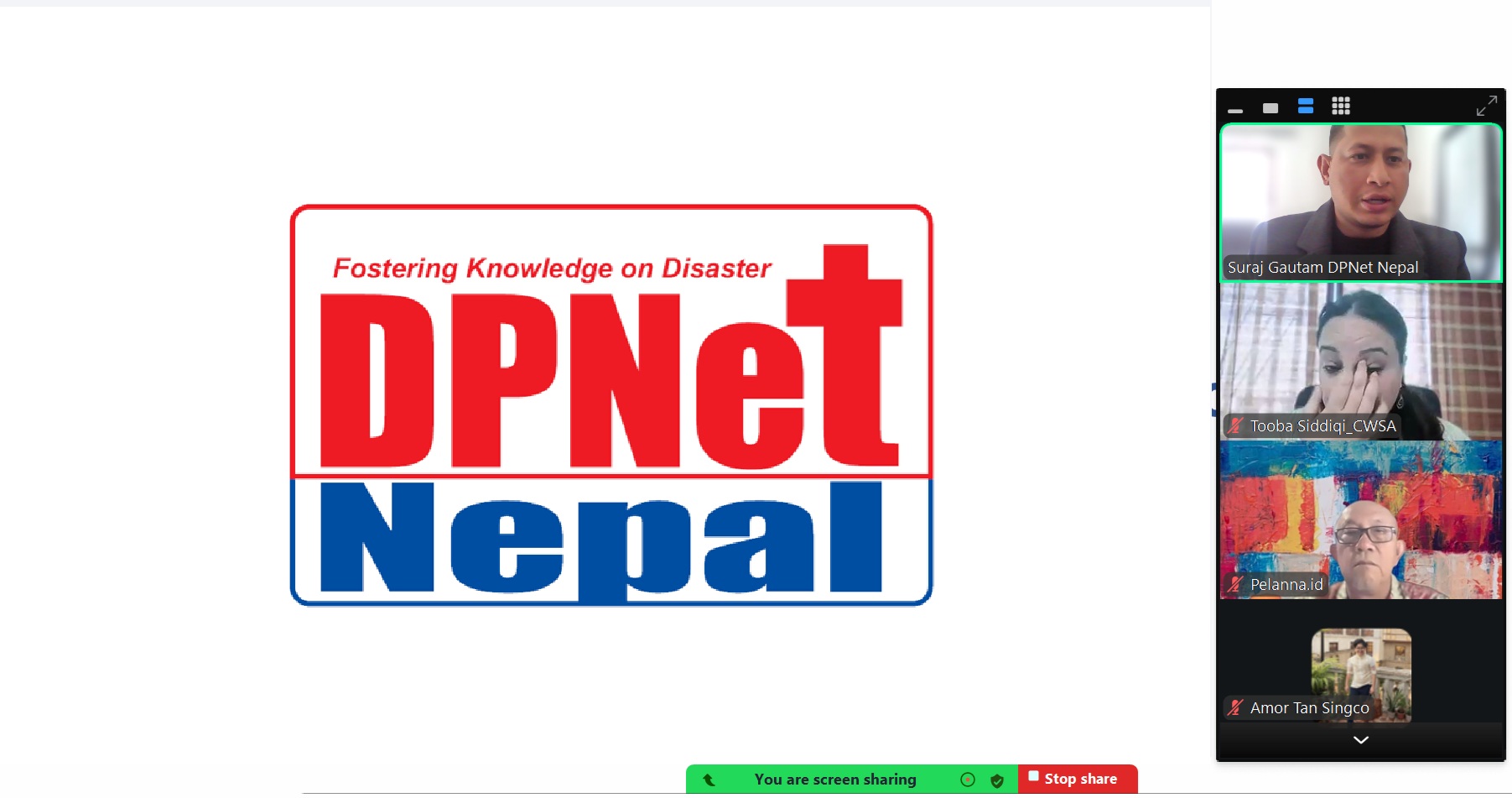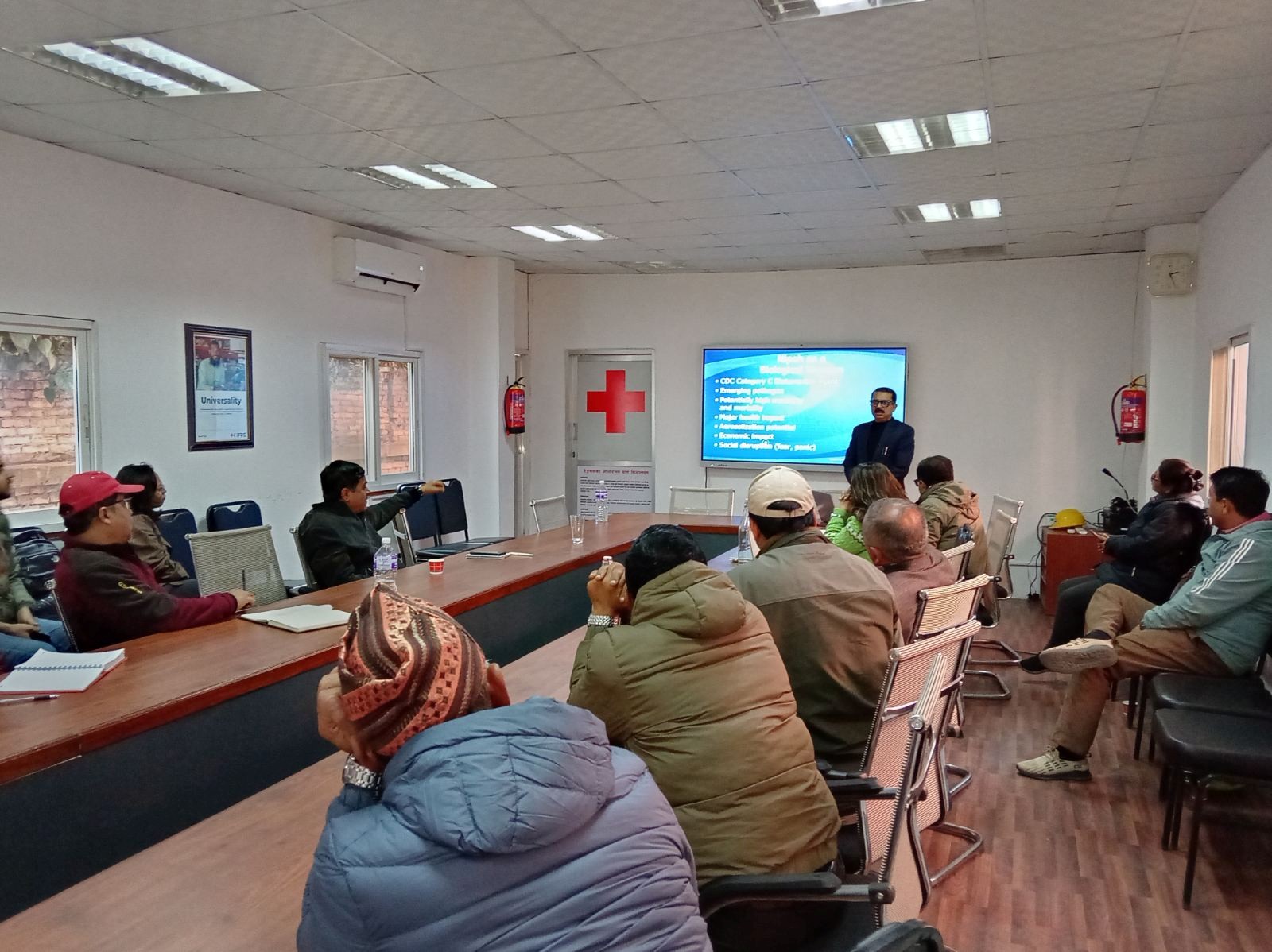Talk Program on International Cooperation and PEER

Disaster Preparedness Network (DPNet), National Disaster Risk Reduction Center (NDRC), and the Asian Disaster Preparedness Center (ADPC) jointly organized a sharing workshop to mark the IDDRR 2021 to share the cooperation and partnership that has successfully implemented the PEER program in Nepal on 27th October 2021. A total of 30 participants participated in this event both in person and virtually.
Major Highlights
· Mr. Shyam Jnavaly, Executive Director of NDRC Nepal welcome the participants and shade light on the relevance of the PEER program in Nepal and the region with the IDDR 2021 theme "International Cooperation". He urged the participants to share the good practices and lessons learned on International Cooperation on DRR to mark the day.
· Dr. Raju Thapa, Secretary of DPNet highlighted the importance of IDDRR and shared the objectives of the program under the theme of IDDRR 2021. He briefly describes the two-decades-long Program for Enhancement of Emergency Response (PEER) to strengthen the emergency response in the Asian region and its contribution to international cooperation in DRRM sectors. He urged Government to institutionalize successful and impactful programs like PEER to make disaster resilient society.
· Mr. Rudra Adhikari, Deputy Director, Nepal Red Cross Society, Disaster Management Department gave a presentation on Community Action for Disaster Response (CADRE). He gave a glimpse of the review done by NRCS. He said that NRCS has endorsed CADRE tools as per the country context through the partnership of ADPC in PEER III, NRCS, and NSET PEER IV which was funded by USAID/OFDA/ARC. He shared about the course, processes of the program, responders, and tools of CADRE. He shared the effectiveness of CADRE tools, their focus on community-level response, target communities, and trained volunteers. He further shared about the engagement of NRCS in the region in collaboration with NSET, DPNet coordinating with local government for developing community responders like CADRE for formulating community response groups as per DRRM policies of the government.
· DSP Arjun Timilsina, Nepal Police shared the presentation about Medical First Responders (MFR) and Collapsed Structure Search and Rescue (CSSR). He shared about the partnership with various agencies such as Nepal Army, Nepal Police, Armed Police force, Nepal Red Cross Society, and Local Government and highlighted subjects/ topics deals in MFR such as emergency medical system and the medical first responders, infectious disease and precaution, basic life support and CPR, oxygen therapy and respiratory emergencies. Similarly, he further shared about the subject deals in CSSR such as; organizing CSSR operation, operational safety, tools equipment and accessories, structural triage and INSARAG marking, rescue strategies, and techniques, shoring methods, lifting and stabilizing loads, Prehospital treatment, final practical evaluations highlighting coherence and the importance of each subject matter.
· Prof. Dr. Pradeep Vaidya, Institute of Medicine (IOM) made a presentation on the “Hospital Preparedness for Emergencies” (HOPE). He highlighted the importance of HOPE in assisting health service providers, both administrative and medical, to enable them to prepare the facility and themselves to function effectively in a coordinated manner to respond to emergencies that involve large numbers of casualties, to assist the hospital to prepare a specific hospital preparedness plan and conduct a drill and institutionalization. He shared the course contents of the HOPE training program, goal, PEER instructor development process till now, and way forward. He requested DPNet, ADPC, and other concerned stakeholders to come up with a concrete action plan to institutionalize HOPE in Nepal.
· Mr. John Abo, Chief of Party (PEER-5/ADPC) shared the regional experiences on implementing PEER. He highlighted that the cooperation and partnership that has successfully implemented the PEER program since 1998. He also mentioned that the innovation carried by ADPC for promoting disaster risk reduction. He shared about the similar program done in other countries as well. The initial working of these courses were highly received by the response organizations under the leadership of the National Disaster Management Organizations (NDMOs). He added that these types of experience-sharing meetings can be best practices for knowledge sharing for various countries as well.
· Ms. Roqiya Javed from Pakistan shared her experiences on establishing the "Rescue 1122" in Pakistan. She shared about the community emergency response team and emergency rescue services at the province level and the services provided by them. She also gave a glimpse of 1122 highlighting low level, medium level, and complex level emergency services. She also acknowledged the contribution of the PEER program to institutionalize 1122 in Pakistan. She also informed that the Pakistan Rescue Team has emerged as the first UN Certified Urban Search and Rescue Team in South Asia.
Major Discussion
· Contribution of PEER's human resource in COVID-19 pandemic and lesson learned.
· Innovative projects like PEER should be developed to contribute to the DRRM sector.
· It is already late to single emergency number so that one can get the benefit of all the other existing helpline
Mr. Man Thapa, Country Representative of ADPC thanked all participants of the program and DP Net for organizing this event and inviting ADPC to share experiences on implementing PEER initiatives in Nepal and the region. Mr. Thapa also highlighted that the PEER training programs are interlinked, well trained, a self-motivated large number of PEER graduates in the country, PEER courses have been institutionalized by different agencies such as Neal Army, Nepal Police, APF, IOM, etc., all PEER courses are regularly revised and ADPC in close partnership and coordination with concerned stakeholders are organizing PEER training this year as well. He also mentioned that there is a need to create a formal forum to share PEER’s national and regional levels experiences and documentation.
Ms. Humkala Pandey, Joint Secretary, and Chief of Disaster, and Conflict Management Division, MoHA briefly shared the importance of international cooperation in DRRM sectors and PEER's contribution to preparing trained and competent human resources to handle disaster/emergency events. She requested ADPC and DPNet to come up with a plan to sensitize and train concerned bureaucrats who are directly involved in response sectors and formally closed the program. The meeting was adjourned at 7:45 pm.











